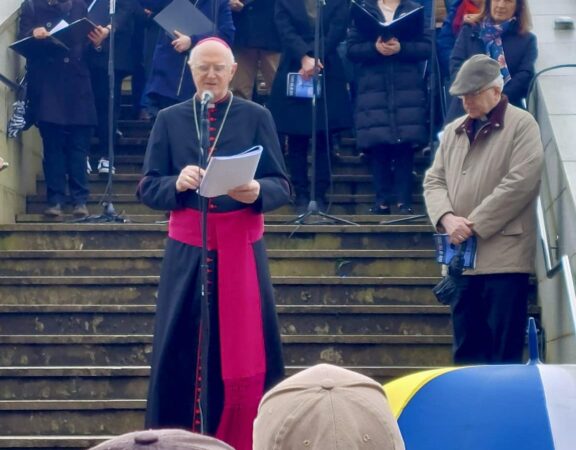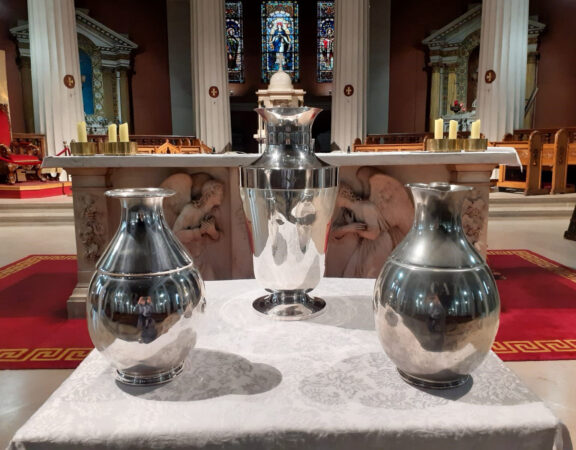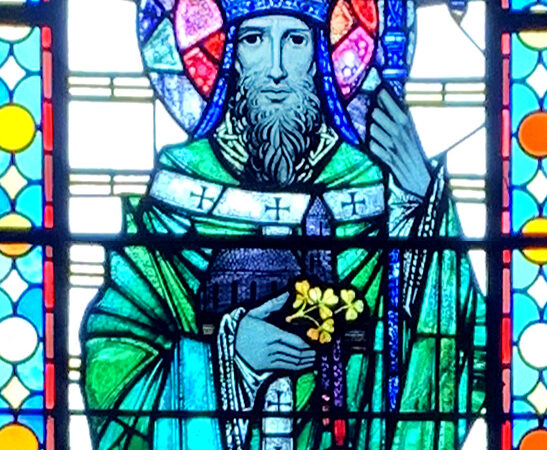Comments by Archbishop Diarmuid Martin on the launch of “Thinking Anew – Faith in a World of Change and Doubt” by Gordon Linney
“I like the title of Gordon Linney’s book. Even though at first sight the book might seem to be a look back at past writings and events, I see the title as an agenda for the future of all our Churches today.
One of the big challenges that believers and Church institutions must ask themselves today and even more so in the future is precisely the question about “faith in a world of change and doubt”.
For me the date 4th October 1962 was a significant one. It was the date 53 years ago when I first climbed the imposing front steps of Clonliffe College to begin my seminary training.
I have often said that I entered Clonliffe in 1962 and left it in 1969 coming back into a different Church and a different Ireland. I remember introducing a sermon I gave in Rome with that statement and my Superior and mentor Cardinal Etchegaray said to me afterwards that it was a good opening line. But then he added: “In my life I have gone through similar change multiple times. That is what life is like today. The important thing is that on each occasion you have to make sure that you come out facing the right direction and no matter what the doubts you have and the changes that take place, you still retain both your integrity and your optimism”.
I spent seven long years in the seminary. I entered the seminary just one week before the opening of Vatican II and I later began studying theology just one week after the publication of the major documents of Vatican II. It was an exciting time to study theology. Even Archbishop Mc Quaid’s seminary began to experience some of the change and the renewed optimism that had been generated by Pope John XXIII, “though not all”.
Even though change was taking place in the world around us, the seminary remained doggedly alien to the ideas of change and doubt. There was one word which we did not hear at all and yet it is a vital word when we come to reflect on faith in today’s world or indeed at any time: that word was risk.
Faith is not about regurgitating perennial certainties. It is about perennially having the capacity to think anew and to think anew within an ever more rapidly changing world, being challenged even to doubt, but as Cardinal Etchegaray said always trying to come out facing in the right direction; not the non-direction of entrenchment in a past which seemed secure but may never have existed, but in renewed thinking, which generates renewed optimism and renewed faith.
Last week I was in the United States at a great celebration on family life led by Pope Francis.
What were my dominant impressions about his presence? One was his abounding energy, both physically and above all in the alertness of his thought. Another was his ability to challenge established wisdom. Another was his ability to say things in a different way. He spoke about the challenges facing the family, but never falling into an atmosphere either of gloom or of closed ideology. He spoke of family in so many different ways. When he spoke of homelessness, he noted that the principal victims of homelessness and inadequate housing were families and especially young children who become deprived of the possibilities of developing opportunity. He spoke of unemployment, noting the effects of loss of work on an entire family. He spoke of migration and of the division of families. He spoke of respect for life at all its stages. He met prisoners, and their families. He took up the theme of family in a language which was understood by the US Congress, the UN General Assembly, visiting Bishops and families themselves.
The other impression I came away with was the upset that this caused to some Catholics, even bishops. It seemed that they found it hard to accept that Pope Francis could challenge accepted wisdom and they could not see that, in challenging, the Pope was really enhancing what is true wisdom about the family.
In my ministry I receive a large number of letters from people who are unsettled by change and are even angry at change. Sometimes I feel angry myself at what they say, but then I have to pause and realise that we, as a Church, have made them like that. We created a climate around faith which generated scruples and failed to free people and give them an experience of a Jesus who liberates us from entrapment and who is there with his mercy to free us once again from entrapment when we fail.
Gordon Linney’s book is an example of someone who never allowed change and doubt to prevent him from thinking anew and expressing that new thinking though the medium of a secular newspaper. His thinking anew was not thinking angrily out loud. It was thinking anew which spurred his readers on to reflect on how faith can interpret and enlighten events of the day.
Gordon’s book came to completion in his retirement and in the changed experience of life brought about by the loss of his wife, Helen, to whom this book is dedicated. Reading through this collection of past articles from the Irish Times, I came away with the clear feeling that this may be a book of memoirs of a man getting older, but above all that this is the book of a man who will continue to think anew and with that creative youthfulness that the Christian Church needs much more of, especially in times of change and doubt.” ENDS









